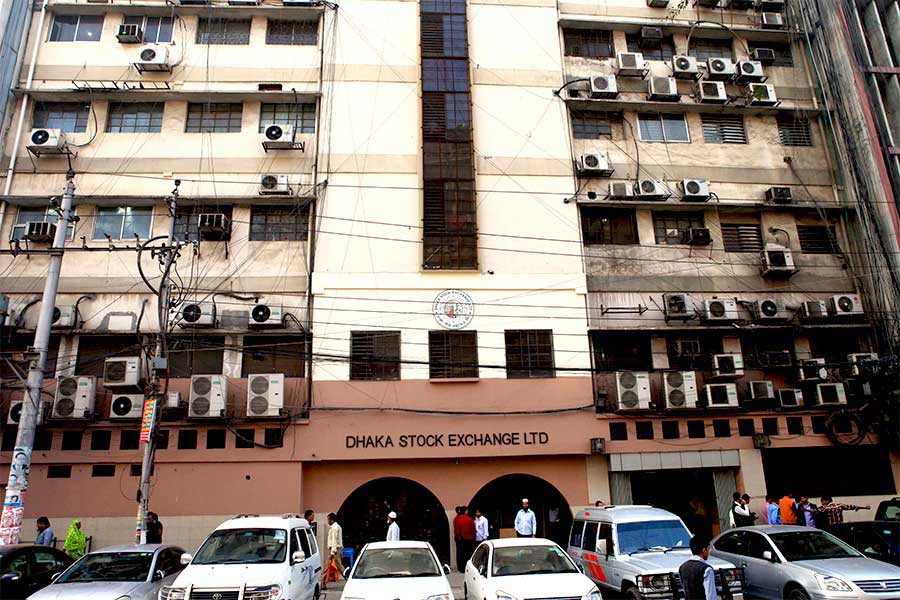Transaction on the over-the-counter (OTC) market of Dhaka Stock Exchange (DSE) jumped 17-fold in the outgoing calendar year 2017 compared to the previous year.
The shares of the companies, which were de-listed from the main trading floor, are traded on the OTC market.
Non-performing, non-operational or non-existent companies are allowed to be traded on the OTC market.
The Bangladesh Securities and Exchange Commission (BSEC) formally launched the OTC market on September 6, 2009 in an effort to facilitate the trading of the de-listed companies.
Currently, 65 companies are listed on the OTC market which started with 51 companies on September 6, 2009.
Between January and December 2017, about 10.88 million shares worth above Tk 726 million were traded on the OTC market, according to DSE data.
In 2016, about 3.32 million shares were traded in the OTC trading floor, generating a turnover of Tk only 40 million.
However, transaction executed on OTC market in 2017 is still insignificant compared to single-day transaction observed by the main bourse, a stockbroker said.
Daily average turnover observed by the premier bourse is Tk 8.75 billion in 2017, whereas the OTC market witnessed a total transaction worth Tk 726 million in 2017.
Market insiders said OTC market of the DSE remained sluggish since the launching more than eight years back, causing only sufferings to some investors rather than relieving them.
They said the situation has intensified the sufferings of the investors who became victims of junk shares with the capital market debacle in late 2010-11.
Reza Hassan, a small investor, told the FE that he could not sell even a single share in the just concluded calendar year.
"It is a buyer-less market".
Another investor said that he has about Tk 0.58 million shares in the OTC market, but failed to sell due to systematic complexity. He alleged that the buyers do not show interest in purchasing OTC stocks due to inconvenient selling procedure.
He urged the securities' regulator to make the transaction process easier and more functional, as the existing system allows investors only to offer a price in case of selling shares whereas they cannot quote a price when they want to buy.
An OTC market official said the investors lost their interest in stocks trading in the OTC market as they considered those risky. "Besides, they are confused whether the OTC stocks could be re-sold or not," he said.
"To protect the investors' interest, the securities regulator should reconstruct the board of directors of the companies under OTC market or appoint administrators in the companies," said an analyst at a leading brokerage firm, seeking anonymity.
Meanwhile, the Dhaka bourse has moved to revamp OTC market so that it becomes more active and attractive.
Recently, the primer bourse has also sent a set of proposals on how to improve the operating system of OTC market, to the Bangladesh Securities and Exchange Commission (BSEC) for approval.
"We will go for the next course of action after receiving instructions from the regulator," a DSE official said.
The total market capitalisation of the OTC market stood at Tk 9.28 billion as on Thursday, the last trading day of 2017 while total number of shares in the OTC market is 418.30 million.
Meanwhile, Alif Industries, which was in the OTC market for more than eight years, backed to DSE main market and commenced trading from Thursday as the company complied with all the regulations required for beginning trade in the main board.
Each share of Alif Industries closed at Tk 143 on Thursday, soaring 10 per cent.
DSE management also allowed Wata Chemicals to main market from OTC market which started its share trading on the main market on May 14, 2014.


